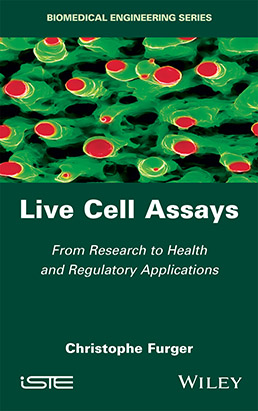
Cell assays include all methods of measurements on living cells. Confined for a long time to research laboratories, these emerging methods have, in recent years, found industrial applications that are increasingly varied and, from now on, regulatory.
Based on the recent explosion of knowledge in cell biology, the measurement of living cells represents a new class of industry-oriented research tests, the applications of which continue to multiply (pharmaceuticals, cosmetics, environment, etc.). Cellular tests are now being positioned as new tools at the interface between chemical methods, which are often obsolete and not very informative, and methods using animal models, which are expensive, do not fit with human data and are widely discussed from an ethical perspective. Finally, the development of cell assays is currently being strengthened by their being put into regulatory application, particularly in Europe through the REACH (Registration, Evaluation, Authorisation and Restriction of Chemicals) and cosmetic directives.
This book is the first summary ever written.
1. Principles and Position.
2. History and State of the Art.
3. Cell Models and Technologies.
4. Loss of Cell Homeostasis: Applications in Toxicity Measurement.
5. The Replacement of Animal Testing: A Driving Force in Live Cell Assay Development.
6. Regulatory Applications and Validation.
7. Cell Signaling: At the Heart of Functional Assays for Industrial Purposes.
8. Applications in New Drug Discovery.
9. Impact on Health and the Environment.
10. Outlook.
Christophe Furger is a cell biologist, Doctor of Pierre et Marie Curie University (Sorbonne Universities, Paris, France) and Director of Research and Development at L.E.D. He has been working since 1995 on the conception of cell assays. He currently heads a public/private research program in toxicity at the LAAS/CNRS lab (Toulouse, France).